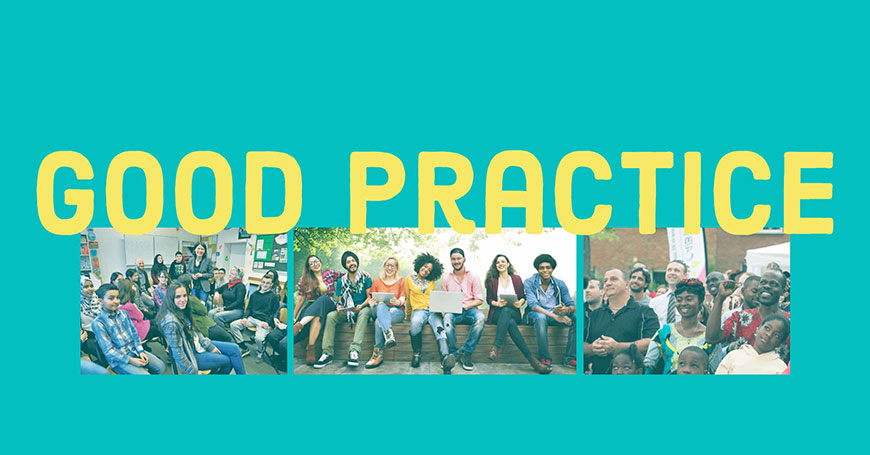Intercultural cities: good practice examples

The first step is the adoption (and implementation) of strategies that facilitate positive intercultural encounters and exchanges, and promote equal and active participation of residents and communities in the development of the city, thus responding to the needs of a diverse population. The Intercultural integration policy model is based on extensive research evidence, on a range of international legal instruments, and on the collective input of the cities member of the Intercultural Cities programme that share their good practice examples on how to better manage diversity, address possible conflicts, and benefit from the diversity advantage.
This section offers examples of intercultural approaches that facilitate the development and implementation of intercultural strategies.
Research Circles
Concept A research circle is a methodology to enable in-depth, participative, and longer-term examination of an issue. It was piloted in Botkyrka to examine issues of racism and discrimination, in...
Anti-Racism as an Urban Common
Purpose: The concept of “the commons” draws from the English legal term for common land and traditionally refers to shared resources held in common. The commons tend to be understood as material...
An international policy in Leeds
Leeds have a policy to encourage international cooperation in economic, scientific, cultural, or other areas. The policy further has a specific financial provision and the city actively takes...


